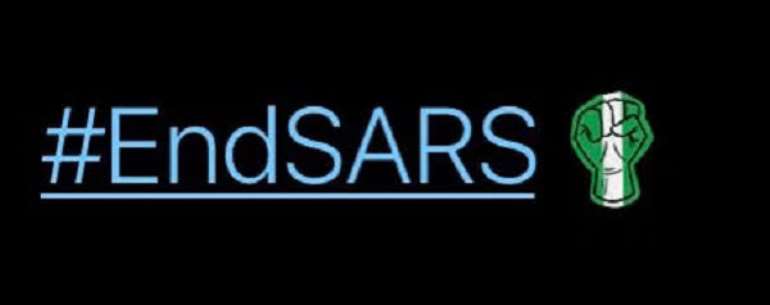On #endsars And The Fear For Nigeria's Democracy.

Being young in Nigeria has always been a sobering experience but the aftermath of the #Endsars protests sparked by emboldened Nigerian youths who dared to hold their leaders accountable has proved retributive for the protesters. The End Sars movement started as a means to liberate Nigerian youths from police brutality and the excesses of SARS officials who extort money from hard-working youths or whoever they suspect to be a "yahoo" boy under the guise of questioning such persons.
Following the abrupt manner in which the protests ended, the last straw being the Lekki Massacre; it is inevitable that Nigerian youths have come to terms with certain facts. The most glaring of them is the attitude of the government towards the series of protests and its antecedent cause.
It is noteworthy that the government deflected from addressing every demands made by the entire populace ranging from good governance to putting an end to police brutality, disbandment of SARS and that justice is meted out to the victims of the atrocities committed by SARS officials. These demands were blatantly disregarded and in the wake of disbanding SARS, SWAT emerged.
Judicial panels were assembled to investigate the Lekki Massacre and cringeworthy revelations emerged when the Nigerian Army who had earlier debunked the report made by Sahara Reporters as to their role during the massacre, confirmed that the Governor of Lagos state, Babajide Sanwo-olu had invited them to the scene without informing them of the change in curfew time. The army also expressed displeasure when the governor denied inviting them.
An undisputable fact is the unapologetic stance of the Nigerian government about its paranoia and this has propelled its indications of illusory anti- regime conspiracies and antagonism from suspicious factions.
This came to play as a form of retribution when a magistrate court ordered the Police to arrest and investigate 50 End Sars protesters who sustained the agitation within two weeks.
Amidst the melodrama, a lawyer, Moe Odele who acted as a public defender during the protests got her passport seized while in transit. Various banking institutions presumed to be acting on government orders also placed restrictions on people's bank accounts.
It is also obvious to all, except the government, that this democracy is in a decline because youths haven't only been denied access to polity, but every attempt to exercise fundamental human rights such as freedom of expression and movement is stifled. With journalists like David Hundeyin fleeing the country before publishing stories, unjust arrests and remandment of protesters and the fleeting of virile youths to seek greener pastures abroad, it's dawning on Nigerians that the country is at the mercy of an imperious government.
Accordingly, the future of the collegiate population who were at the forefront of the protests is at stake due to the uncertainty of their plight. It is crucial to recall that in the early days of the protests, The Nigerian Government as was its wont, censured the Academic Staff Union of Universities (ASUU) by implying that the youth's preoccupation with protests was due to ASUU's incessant strikes.
Optimism bubbled when it seemed like the federal government would give in to ASUU's demands in order to intercept the protests but that wasn't to happen. Even after the traumatic experience of watching their colleagues and friends lose their lives in their prime for a cause that would be beneficial to all, youths are still reclining idly at home as their only way of fighting has been subdued.
It reeks of distaste when the government of a democratic society prioritises the future of repentant boko haram insurgents over that of hardworking youths who labour for their daily bread. Yet, this is the sad reality in Nigeria and unrest has plagued the heart of individuals as to the future of the nation.
Amnesty deals are offered to terrorists while citizens face the trigger should they dare to ask for accountability. It would seem the government is oblivious to the fact that such efforts is counter productive to the fight against terrorism.
In view of the consequences of the demonstrations, it is evident that the government took a proactive stance against subsequent requests for good governance and sustainable development.
Yet, as uncertainty lurks in the present, hope beckons from the future in form of the 2023 elections when it is expected that democracy will resurrect and the power to choose will be relegated to the people as is the norm, but the questions originate;
Should citizens wait till 2023 to take a stance?
Is the change of candidates what counts or an entire overhaul of components that could contribute to the emergence of yet another dictatorial regime in 2023?
Elle Adedoyin is a journalist who writes from Lagos.
